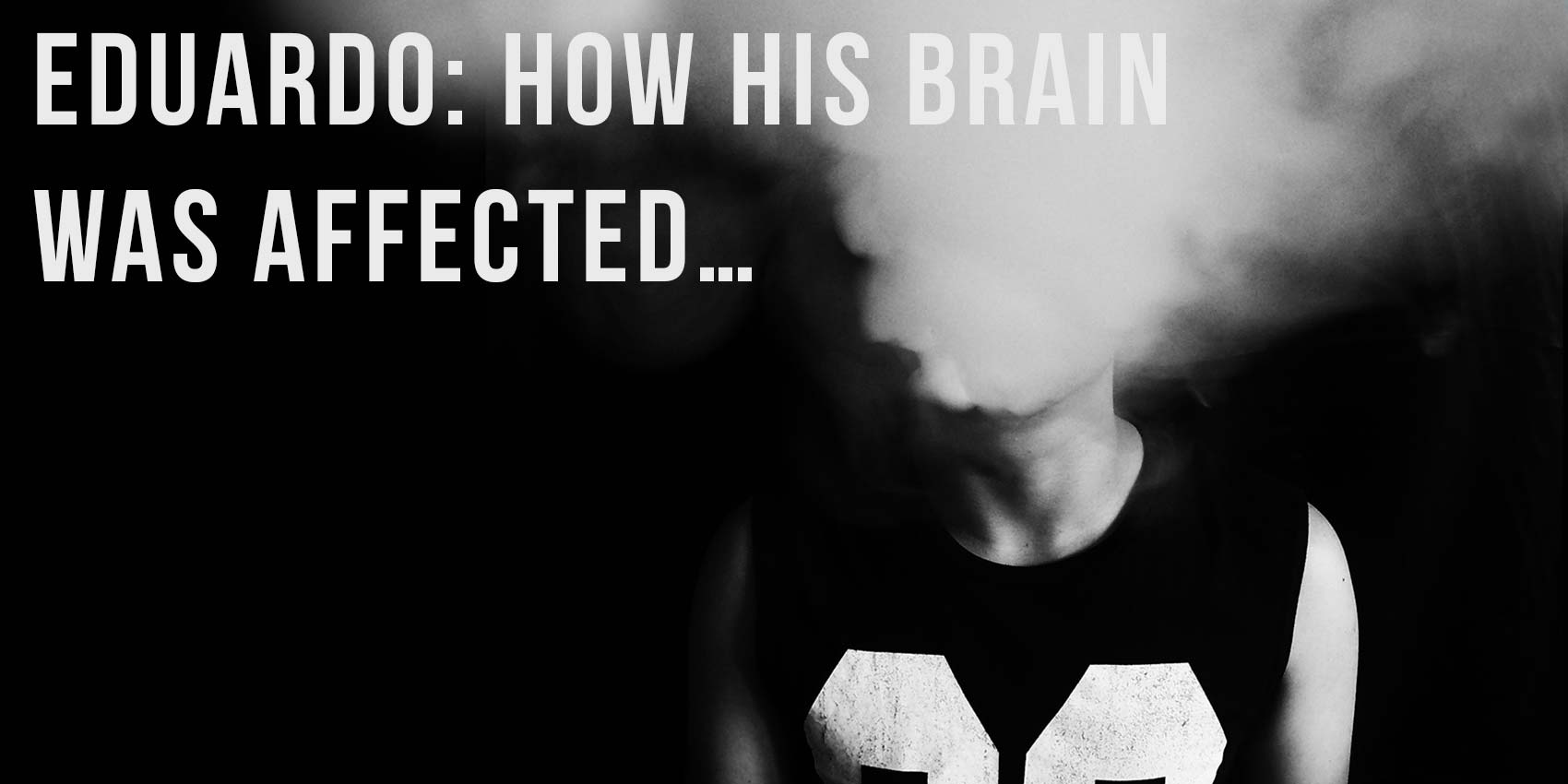21 Oct Eduardo: how his brain was affected…

Your brain is made up of all these working parts (systems) that communicate together to help you do everything from read this sentence to tie your shoe to grimace at eating fried worms.
But as you just learned, your brain is still forming: some parts of your brain are fully formed and some are not quite there yet. The part that helps with decision-making is still forming so it needs your help at times.
Eduardo’s brain is still forming, too. He’s 15 and he’s still finding it hard to make smart decisions, control his impulses and plan ahead. This is because his pre-frontal cortex is in charge of all these functions and is not fully formed. But his amygdala, in charge of emotions and fear, is. (To learn all about that, check out the “Your Brain” chapter in Discover Your Self).
He is tempted by friends to try pot. He’s curious. What could the harm be if I only do it a few times?, he wonders. So, Eduardo smokes pot one day before school. Nothing bad happens and he’s still curious, so he does it again. Soon it becomes a habit – he is smoking pot everyday, several times a day, which means that he is spaced out in class and can’t focus. He also can’t manage to get his home work done. Soon his grades begin to slip. But he’s enjoying himself, so he doesn’t seem to care or change his habits. After all, he wonders, What harm could I really be doing?
A lot of harm, it turns out.
You see, if Eduardo had the ability to clone himself at the exact moment before he tried pot, we could then see the no-pot Eduardo and compare him to the pot Eduardo. And what we would see might surprise you.
For starters, Eduardo’s brain would be different if we could go in and slice it open and take a look: the normal connections among the systems would be affected.
No-pot-Eduardo’s brain systems would be communicating beautifully, like a symphony or the greatest band you’ve ever heard in complete sync with one another.
Pot Eduardo’s brain systems’ ability to communicate would be seriously impaired. The music would sound terrible – you would definitely switch that channel. This is because the primary psychoactive ingredient in marijuana, THC, impairs the thinking and memory areas of the brain.

“Marijuana use may tweak the brain – especially the developing brain – in significant and detrimental ways that could ultimately lead to psychosis.”
(Forbes.com, 12/26/2012)
No-pot Eduardo continues through school, does well, makes smart decisions and feels happy and successful in life.
Pot Eduardo has damaged his brain just enough for his grades to slip, to lose concentration and focus and to have a few stupid accidents in high school that landed him in the emergency room. He also had a brief encounter with the police that is now on his permanent record.
Now it’s your turn. How do you imagine the lives of Eduardo’s two different bodies from the ages of 20-35 look like?

DID YOU KNOW? “A large longitudinal study in New Zealand found that persistent marijuana use disorder with frequent use starting in adolescence was associated with a loss of an average of 6 or up to 8 IQ points measured in mid-adulthood. Significantly, in that study, those who used marijuana heavily as teenagers and quit using as adults did not recover the lost IQ points.”




Post Question:
Have you ever had a moment in your life that affected you so that you feel like there is the “before event you” and the “after event you?” Feel free to share it.
Answer the post question here
What's being said